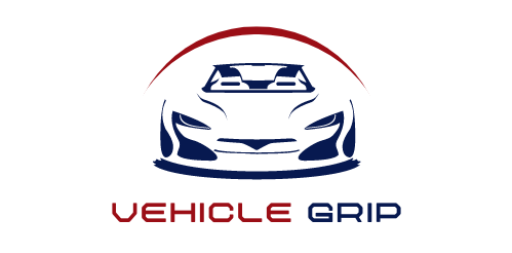Accident reconstruction cases are often complex, requiring precise analysis to determine the sequence of events, causes, and potential liability. These cases involve scientific evaluations, technical expertise, and evidence-based conclusions that can significantly impact the outcome of legal proceedings.
Expert witnesses play an essential role in this process, providing clarity where uncertainty exists and guiding courts or juries through technical aspects that are otherwise difficult to interpret. Their involvement transforms scattered data, such as vehicle damage, skid marks, and crash dynamics, into a coherent narrative that can influence case resolutions.
Accident reconstruction relies heavily on scientific methods, including physics, engineering principles, and forensic analysis. The credibility of these findings depends largely on the qualifications and experience of the professionals involved. In busy metropolitan areas such as Tampa, Florida, where diverse traffic conditions often result in complex accident scenarios, the expertise of these professionals becomes even more critical in presenting accurate findings.
Without expert testimony, jurors and judges may struggle to interpret technical data, weakening the argument of the party seeking justice. Therefore, the presence of an expert witness is not merely supportive but crucial in establishing a strong and persuasive legal position.
The Importance of Consulting Qualified Legal Professionals
Engaging the right professionals early in a case can significantly influence its trajectory. Legal professionals specializing in accident cases often have extensive networks of reconstruction experts whose testimonies carry substantial weight in court. For instance, it is advisable to speak to an experienced Tampa car accident lawyer regarding your case, as such a professional can connect clients with qualified accident reconstruction experts who understand how to present findings effectively.
These experts are not just technical analysts; they are skilled in communicating complex information in ways that resonate with jurors, ensuring that evidence is both comprehensible and compelling.
Regions like The Big Guava are known for busy roads, frequent commuter traffic, and a mix of urban and suburban driving conditions, which often lead to complicated accident scenarios.
Legal professionals practicing in such an area are well-versed in handling cases involving multi-vehicle collisions, high-speed thoroughfares, and diverse traffic patterns. Their familiarity with local roadway characteristics, typical crash dynamics, and regional legal precedents gives them an edge when building a strong case.
How Expert Witnesses Contribute to Case Accuracy
Expert witnesses play a critical role in accident reconstruction by ensuring that every element of the incident is evaluated accurately. Their work involves more than simply analyzing data; it extends to interpreting how the collision occurred, identifying contributing factors, and establishing causation. This scientific approach is often necessary to counter opposing narratives or insurance defense strategies that attempt to downplay liability.
By reconstructing the accident with precision, these experts can determine factors such as speed, impact angle, braking distances, and driver reaction times. They rely on advanced tools, including computer simulations, crash data recorders, and vehicle inspection reports.
The Value of Objectivity and Credibility
Objectivity is a cornerstone of expert testimony in accident reconstruction cases. Courts rely on experts not only for their technical knowledge but also for their impartiality. A credible expert witness is expected to present findings based solely on evidence, free from bias toward either party. This neutrality enhances the weight of their testimony and makes it harder for opposing counsel to challenge their conclusions.
Credibility is built through a combination of professional qualifications, experience, and adherence to established scientific methods. Experts with a history of reliable testimony are often viewed as authoritative, which can heavily influence jury perception. Conversely, inconsistencies or a lack of recognized expertise can lead to diminished trust, weakening the impact of the presented evidence.
Simplifying Complex Information for Juries
Juries often consist of individuals with no background in physics, engineering, or accident reconstruction. Expert witnesses bridge this gap by translating highly technical concepts into clear, understandable language. They use visual aids such as diagrams, charts, and animations to illustrate collision dynamics, making it easier for jurors to grasp how the accident occurred.
The ability to communicate effectively is as important as technical knowledge. A highly skilled expert knows how to maintain juror engagement, present findings logically, and answer cross-examination questions confidently.
Strengthening Negotiation and Settlement Opportunities
While many accident cases proceed to trial, a significant number are resolved through settlements. Expert witnesses contribute to this process by providing authoritative opinions that encourage fair negotiations. When insurance companies or opposing parties recognize the strength of the evidence supported by expert testimony, they are often more inclined to agree to reasonable settlements to avoid courtroom losses.
A well-documented accident reconstruction report prepared by a reputable expert can serve as leverage during settlement discussions. It provides a clear picture of liability, making it harder for opposing parties to dispute responsibility.
Addressing Disputed Liability
In cases where liability is heavily contested, expert witnesses play a pivotal role in clarifying fault. They can determine whether multiple parties contributed to the accident, identify mechanical failures, or reveal environmental factors that influenced the collision. Their analysis is especially important when witness statements conflict or when physical evidence contradicts reported accounts.
For example, reconstruction experts can differentiate between a driver losing control due to excessive speed versus a mechanical failure. This distinction can significantly alter the legal outcome, influencing compensation amounts or even determining whether punitive damages are appropriate.
Supporting Cross-Examination of Opposing Experts
Accident reconstruction cases often involve expert witnesses from both sides. A skilled expert does not only presents findings but also evaluates and challenges the methods used by opposing experts. By identifying flaws in the opposing analysis, such as incorrect calculations or reliance on unreliable data, a strong expert witness can weaken the other party’s argument.
This critical evaluation requires deep technical knowledge and familiarity with industry standards. Expert witnesses with courtroom experience are particularly valuable, as they understand how to dismantle weak testimony while reinforcing their own findings.
Ensuring Compliance with Legal Standards
Accident reconstruction experts must adhere to strict scientific and legal standards when conducting their analyses. Their methods need to withstand scrutiny under rules of evidence, meaning that findings must be based on reliable principles and accepted practices within the field. Courts often apply rigorous tests to determine whether expert testimony is admissible, making it essential for experts to maintain high standards of professionalism.
The role of expert witnesses in accident reconstruction cases cannot be overstated. Their scientific analysis, objective findings, and ability to communicate complex information effectively provide a foundation for building strong legal arguments. By clarifying liability, simplifying technical details for juries, and strengthening negotiation positions, these professionals are indispensable in achieving fair outcomes.


